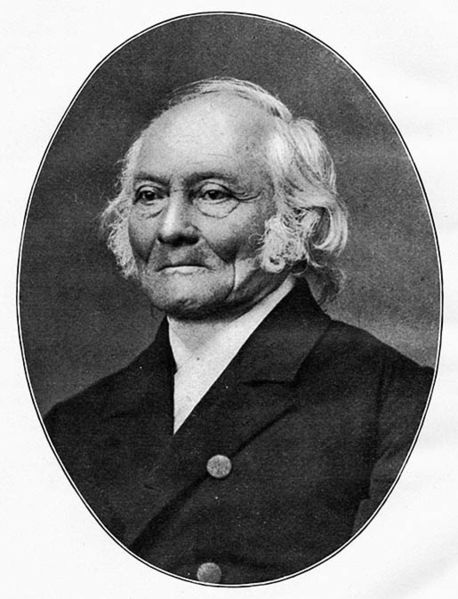<Back to Index>
- Physician Ernst Heinrich Weber, 1795
- Writer Claude Cunningham Bruce Marshall, 1899
- President of the Swiss Federal Council Kurt Furgler, 1924
PAGE SPONSOR

Ernst Heinrich Weber (June 24, 1795 – January 26, 1878) was a German physician who is considered one of the founders of experimental psychology.
Weber studied medicine at Wittenberg University. In 1818 he was appointed Associate Professor of comparative anatomy at Leipzig University, where he was made a Fellow Professor of anatomy and physiology in 1821.
In the 1820s or 1830s Weber began studying the tactile senses, the two - point threshold and weight perception. He published his early work in 1834 in Latin (De Tactu), and published this together with later work in 1846 in German (Tastsinn und Gemeingefühl). He found that weight discrimination was much finer with active lifting than when the weights were placed on supported hands. He also found that the just - noticeable difference (jnd) of the change in the magnitude of a stimulus (viz., small weights held in the hand) is proportional to the magnitude of the stimulus (e.g., 5%), rather than being an absolute value (e.g., 5 grams). Gustav Fechner named this Weber's Law. Fechner explored this relation further in the 1850s and, integrating over Weber's proportional jnds, argued for a logarithmic relation between physical and psychological (or perceived) magnitudes. This new law became known as Fechner's Law, or the Weber - Fechner Law, and formed the basis of Fechner's new science of psychophysics.
Weber is also noted for his discoveries in anatomy, in particular that of the existence of a rudimentary uterus in male mammals, but his greater fame rests upon his pioneer work in the exploration of the sense organs. His work upon the ear and upon the cutaneous senses — pressure, temperature, and what was then called the ‘common sense’ — led to the introduction of the experimental method in psychology. The important law which usually bears his name was the first general law in psychophysics. However, Weber himself produced very little experimental data on the topic, and later work showed that the law holds only approximately in the mid range for most sense modalities. Weber did not propose any theoretical reason behind the law. He would be better remembered for his work on the relation between neural structure and sensation.
In 1866 Weber retired as professor of physiology and also as professor of anatomy in 1871. Around this time he and his brother, Eduard Friedrich Weber, discovered the inhibitory power of the vagus nerve.